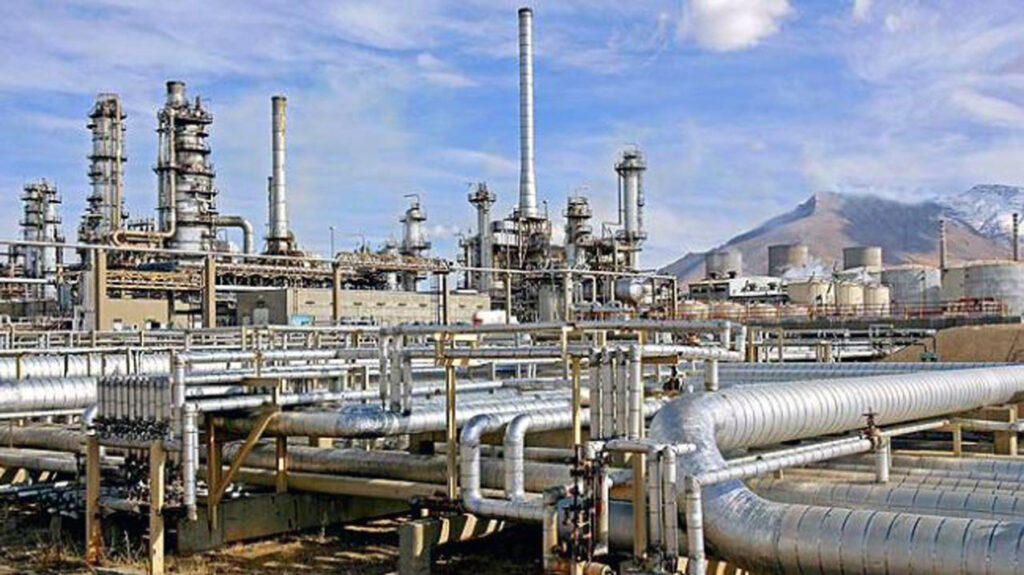
By Ese Ufuoma
Sixty-four years after Nigeria achieved independence, the nation’s oil sector remains a complex narrative of potential, struggle, and missed opportunities. Despite boasting some of the largest proven oil reserves globally, with around 37 billion barrels, the impact of crude oil on the country’s economy is less pronounced than one might expect. Today, oil accounts for less than 10 per cent of Nigeria’s Gross Domestic Product (GDP), yet it constitutes nearly 90 per cent of the country’s foreign exchange earnings and over half of its government revenue.
Nigeria’s journey into the oil industry began in the 1950s when commercial exploration started to take shape. By the time of its independence in 1960, the groundwork for a booming oil economy was laid. The country quickly became a significant player in the global oil market, joining the Organization of the Petroleum Exporting Countries (OPEC) in 1971. This membership offered Nigeria a platform to collaborate with other oil-producing nations, aiming to stabilize prices and ensure profitability.
In the early 1970s, the oil boom arrived, marked by skyrocketing prices. In 1973, OPEC orchestrated a significant price hike that quadrupled the cost of oil from $3 to $12 per barrel. Such increases not only enriched member countries but also underscored the power of collective bargaining in the global oil market.
The influx of oil revenue transformed Nigeria’s economy, enabling massive infrastructure projects and social programs. Cities like Port Harcourt and Lagos flourished, drawing workers from rural areas seeking better opportunities. However, the rapid growth also brought challenges, including corruption, environmental degradation, and social unrest. Communities in oil-producing regions often found themselves marginalized, with little benefit from the wealth generated by the oil industry.
As the 1970s progressed, Nigeria’s oil production peaked, solidifying its position as Africa’s largest oil exporter. The government implemented policies aimed at nationalizing the industry, leading to the establishment of the Nigerian National Petroleum Corporation (NNPC) in 1977. This move sought to increase state control over oil resources and ensure that the benefits of oil wealth reached the broader population.
Despite these ambitions, the volatility of global oil prices began to pose significant risks. The late 1970s and early 1980s saw fluctuations that impacted Nigeria’s economy, revealing its heavy dependence on oil revenue. The government’s inability to diversify the economy led to increased vulnerability, highlighting the need for sustainable development beyond oil.
Despite these opportunities, Nigeria’s reliance on oil revenue has created a precarious economic situation. While the nation enjoyed substantial income during boom periods, it failed to establish a robust, diversified economy. In contrast, other oil-rich nations, like Saudi Arabia and the UAE, proactively sought to reduce their dependence on oil. They invested in infrastructure, education, and technology, creating alternative industries that could sustain economic growth beyond the oil boom.
Nigeria’s Missed Opportunities
Nigeria’s experience contrasts sharply with the proactive approaches taken by other oil-rich nations. The country’s heavy reliance on oil has not only led to economic instability but has also stunted broader development efforts. Despite being one of the largest oil producers in Africa, Nigeria has struggled to translate its oil wealth into sustainable economic growth and social progress.
During periods of high oil prices, particularly in the early 2000s, Nigeria saw a surge in revenue that could have been utilized for transformative investments. However, the lack of a coherent and strategic vision meant that these windfalls were often squandered on short-term expenditures rather than long-term development initiatives. Corruption, mismanagement, and an overreliance on oil exports resulted in a fragile economy, susceptible to the vicissitudes of global market fluctuations.
The plummet in oil prices in the mid-2010s was a critical juncture for Nigeria. The decline not only eroded government revenue but also exposed the country’s deep-seated vulnerabilities. As oil prices fell below $30 a barrel, Nigeria found itself in a precarious situation, facing significant budget deficits and a currency crisis. The economic ramifications rippled through various sectors, leading to increased unemployment rates and heightened poverty levels.
The lack of economic diversification became glaringly apparent. While countries like Norway and Qatar developed robust sovereign wealth funds and invested in education, healthcare, and infrastructure, Nigeria’s economy remained predominantly oil-dependent. Industries such as agriculture and manufacturing, which could have provided alternative sources of income and employment, languished due to neglect and underinvestment.
Moreover, the downturn in the oil sector intensified social inequalities and unrest. Communities in oil-rich regions, often marginalized and left with environmental degradation from oil extraction activities, experienced growing discontent. The government’s failure to equitably distribute oil wealth further fueled grievances and contributed to instability, particularly in the Niger Delta.
In response to these challenges, some efforts were made to reform the economy and promote diversification, but these initiatives have frequently been undermined by political instability and persistent corruption. Attempts to improve the agricultural sector or develop other industries have struggled to gain traction, and the country continues to face the consequences of its historical choices.
A Call for Change
As Nigeria moves forward, there is an urgent need for a comprehensive reevaluation of its economic strategy. Leaders must prioritize diversification, focusing on sectors such as agriculture, technology, and renewable energy. By investing in these areas, Nigeria could cultivate a more resilient economy capable of weathering the uncertainties of the global oil market.
Additionally, fostering an environment conducive to entrepreneurship and innovation is crucial. Encouraging small and medium enterprises can stimulate job creation and drive economic growth, alleviating some of the challenges associated with oil dependency.
Nigeria’s oil story is one of immense potential intertwined with significant challenges. As the nation reflects on its past and the lessons learned, the path forward must prioritize diversification and sustainable development. By embracing a broader economic vision, Nigeria can transform its rich oil reserves from a source of vulnerability into a foundation for lasting prosperity. The time for action is now; the future of Nigeria’s economy depends on it.


